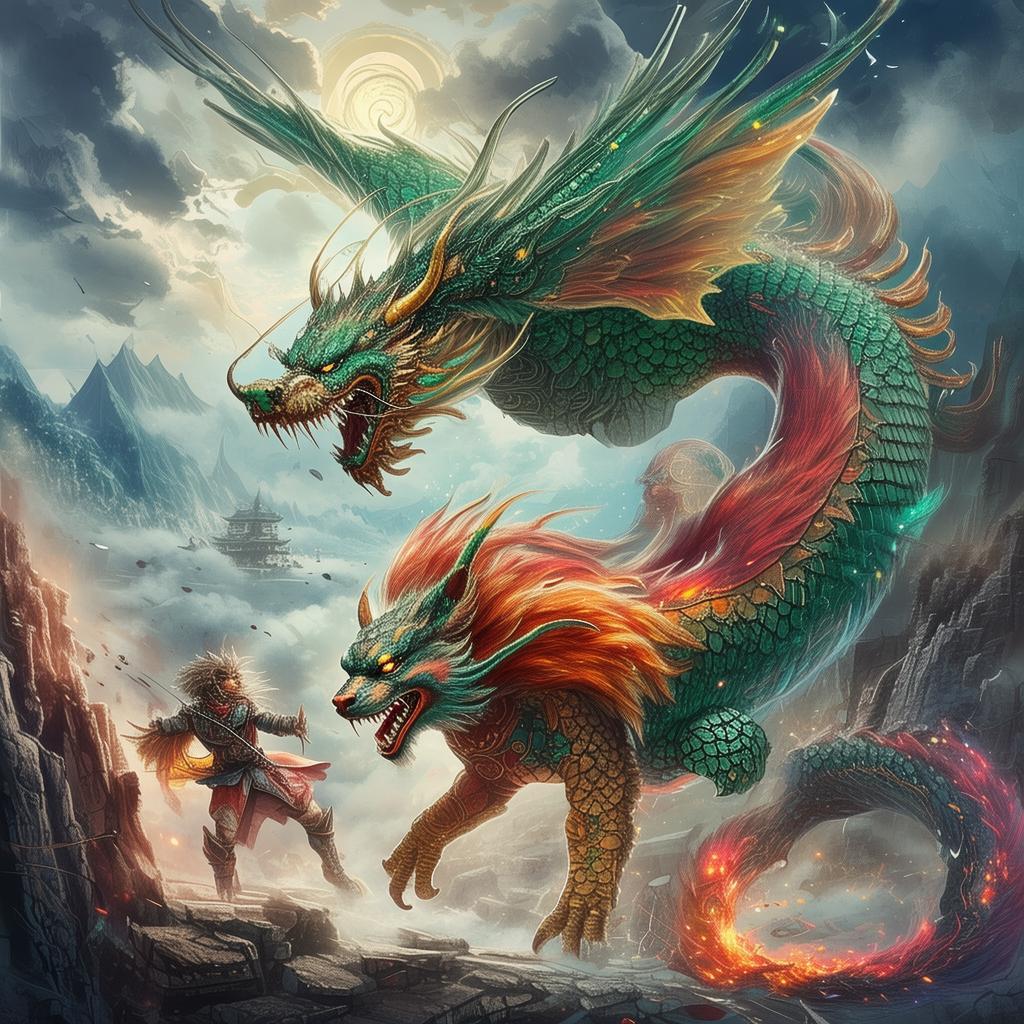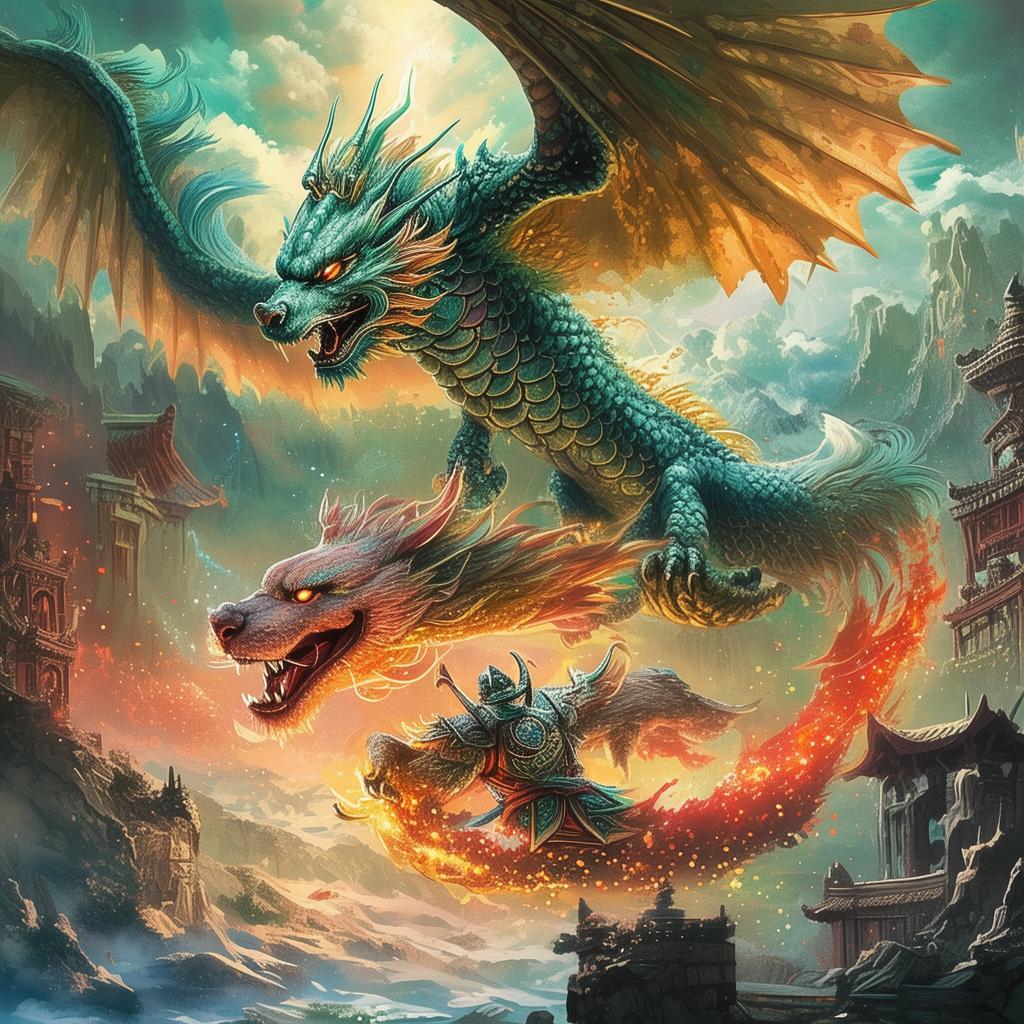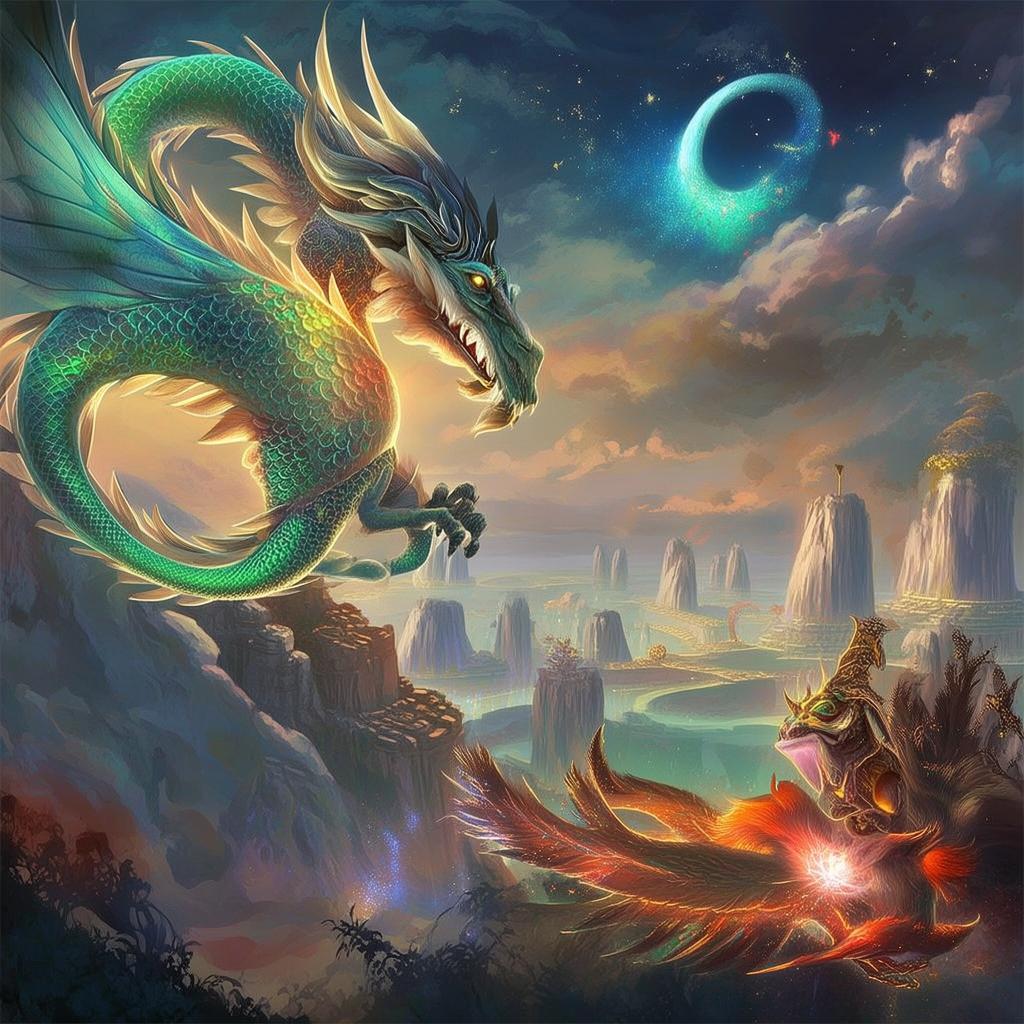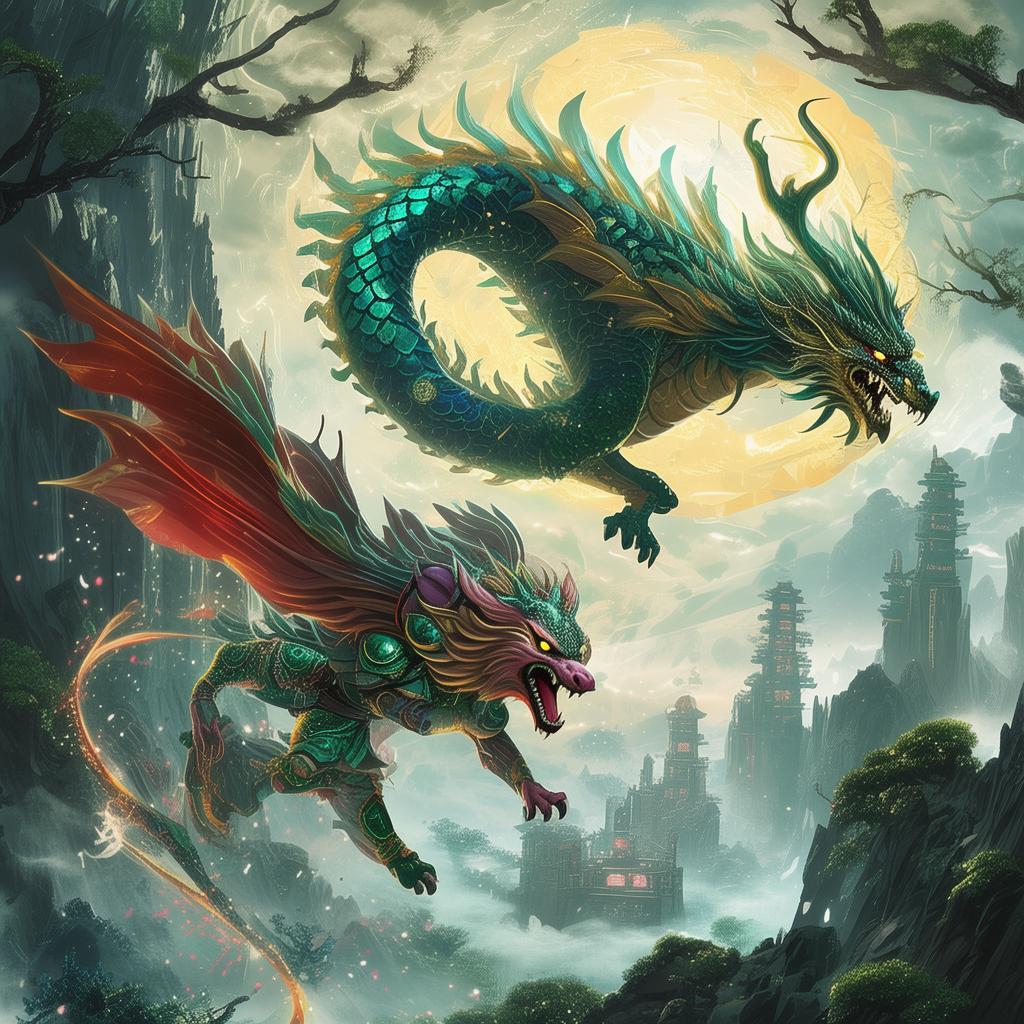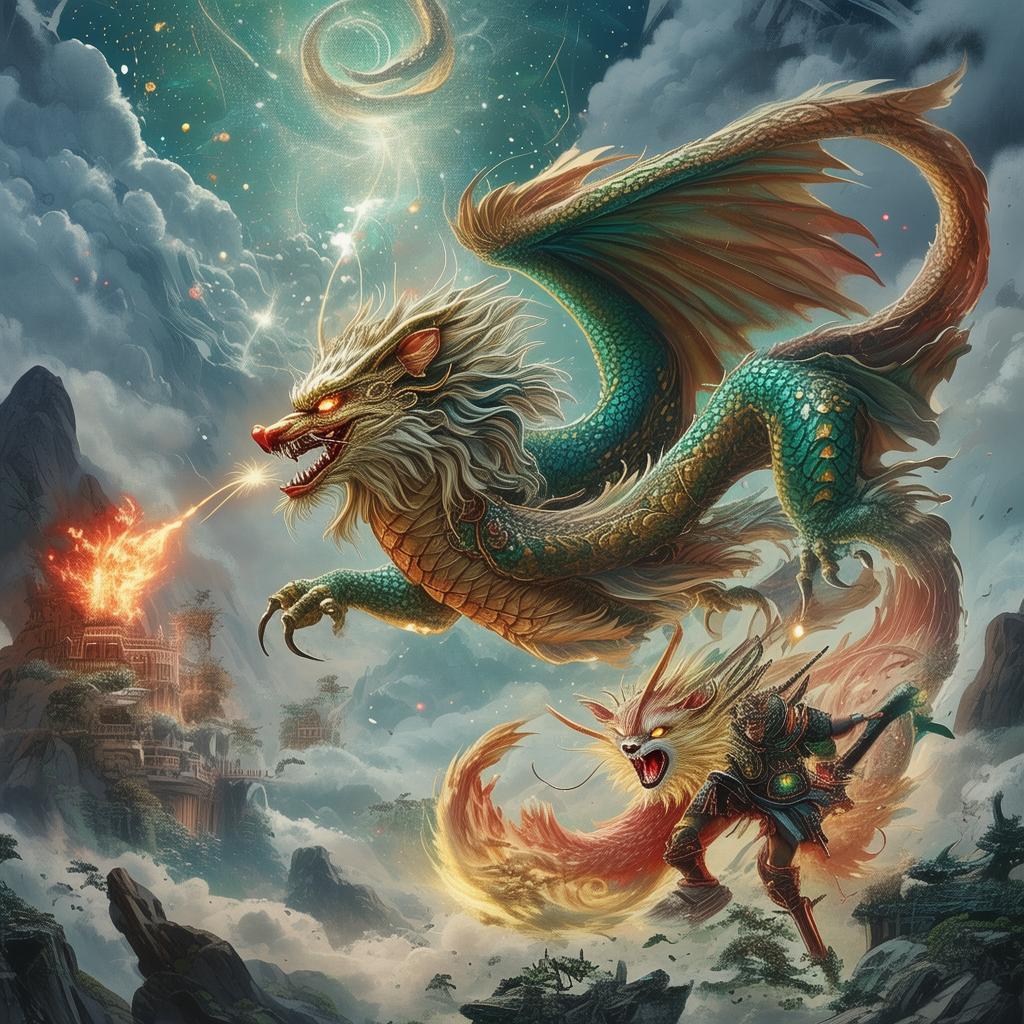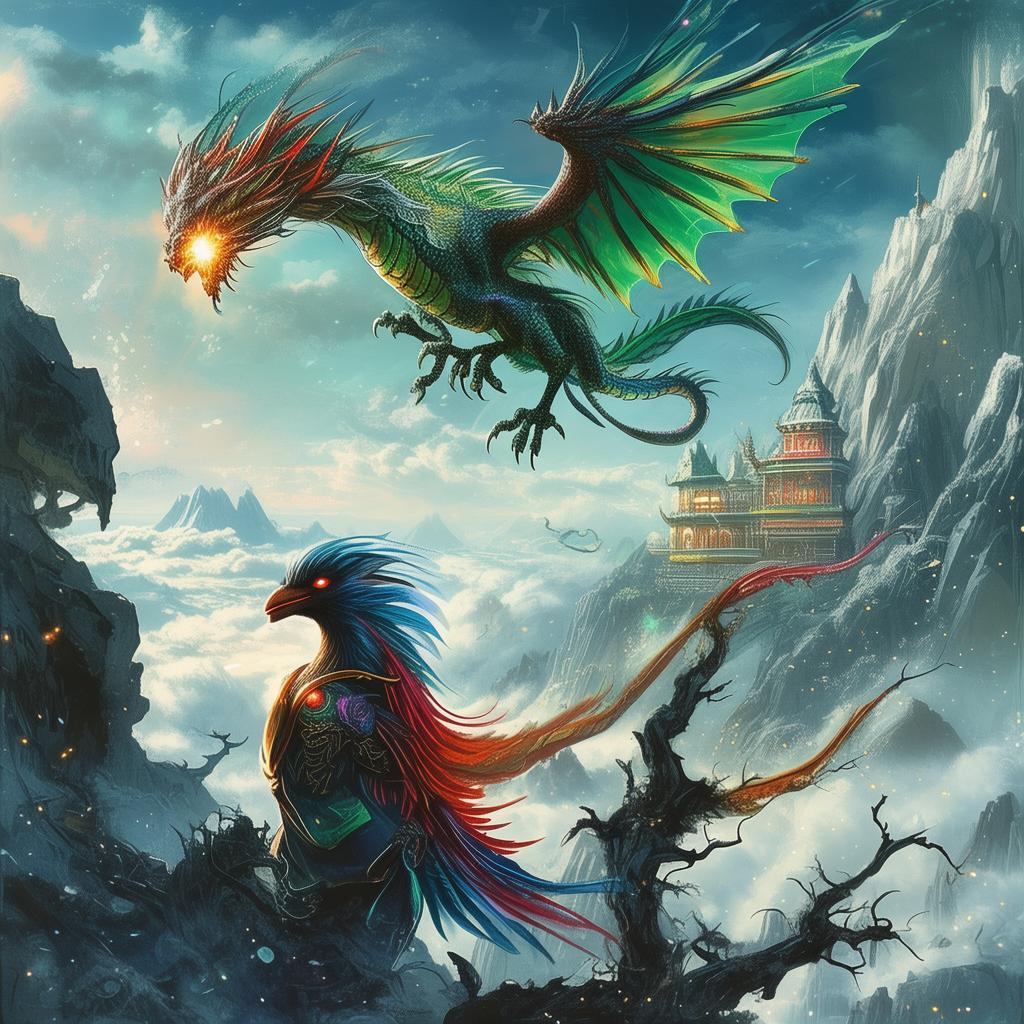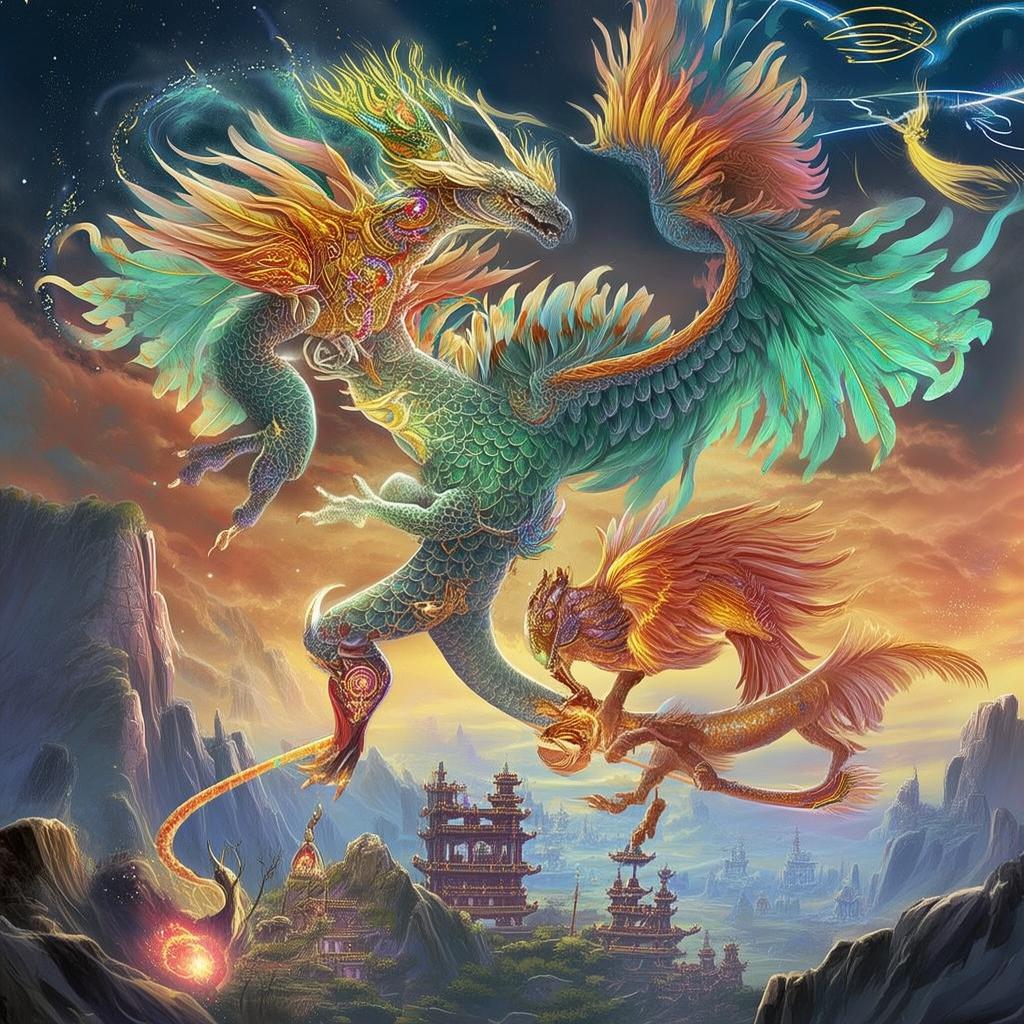Shadows of the Ancient Mountain: The Yu's Ruins
In the heart of the ancient Chinese mountains, where the mist clung to the peaks like a shroud, there lay the ruins of an ancient civilization, forgotten by time. These were the ruins of Yu the Great, the legendary hero who had once unified the warring states under a single rule. Now, they were a labyrinth of decayed stones and twisted trees, whispering tales of a tragic past.
In the year of the Dragon, a young scholar named Lin journeyed to the ruins, driven by a thirst for knowledge and a sense of destiny that had been calling to him since childhood. The whispers of the mountains spoke of a treasure hidden within the ruins, a treasure that could change the course of history. But what Lin didn't know was that this quest would lead him into the heart of the mythical dimensions, where the boundaries between reality and fantasy blurred.
As Lin ventured deeper into the ruins, he encountered the specter of Yu the Great, a figure cloaked in rags and shadows, his eyes hollowed with sorrow. Yu revealed to Lin that the treasure he sought was not a material one but a piece of his own heart, the heart that had been torn apart by the weight of his responsibilities and the cost of his triumphs.
"The heart of the mountains," Yu explained, "is a reflection of my own. It holds the power to heal and to destroy, to bring peace and to bring chaos. But it can only be found by one who has truly faced their own heart's darkness."
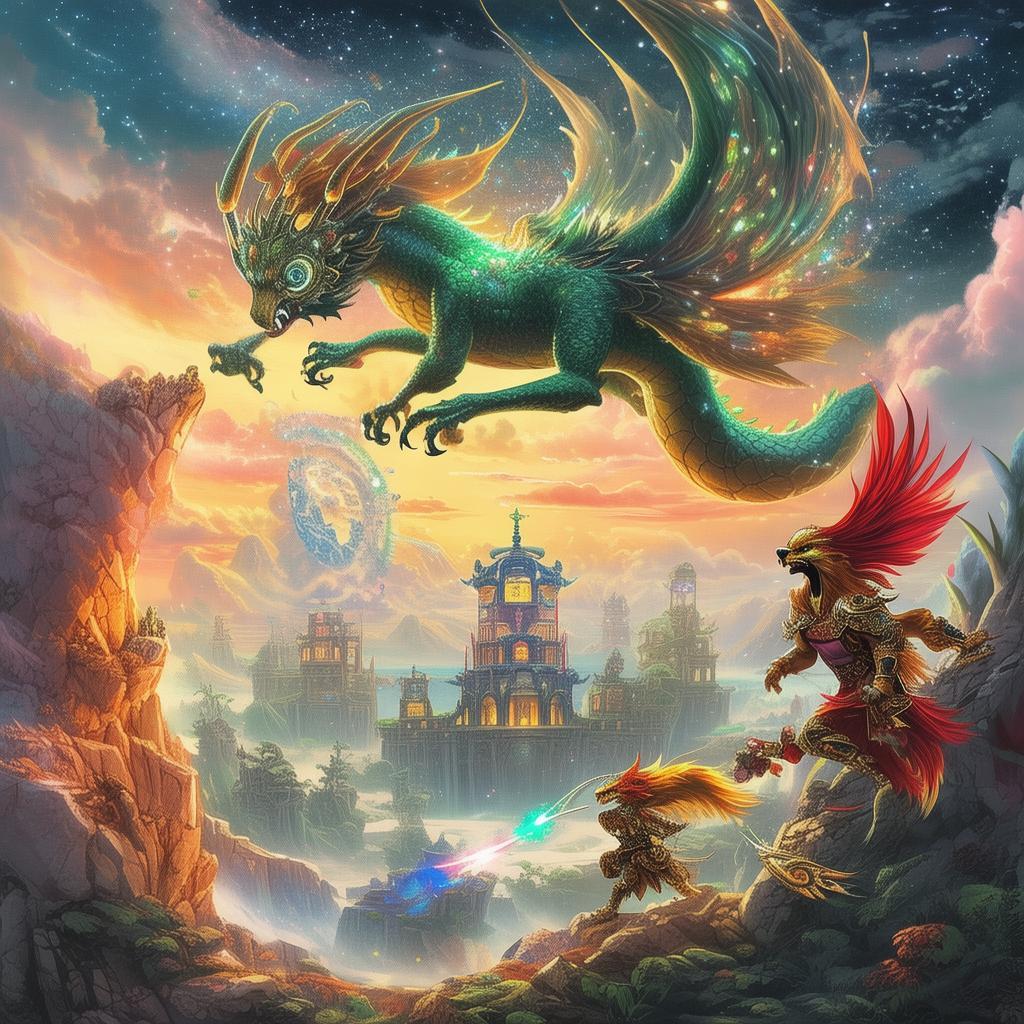
Lin, determined to uncover the truth, embarked on a perilous journey through the mythical dimensions, encountering creatures of legend and navigating the treacherous landscape. He encountered the nine-headed dragon, which guarded the entrance to the heart of the mountains, demanding a sacrifice in exchange for passage. Lin, with no time to hesitate, offered his own shadow, a sacrifice that seemed to bind him to the spirit of the dragon.
Inside the heart of the mountains, Lin found a chamber of mirrors, each reflecting a different aspect of his own life and choices. He saw his failures, his triumphs, and the pain he had caused to those he loved. It was in this reflection that he realized the true nature of the treasure: it was not power, but self-awareness and the ability to forgive oneself.
With newfound clarity, Lin returned to the ruins, where Yu the Great awaited him. The spirit of the ancient hero embraced Lin, his sorrow replaced by a sense of peace. Yu entrusted Lin with the heart of the mountains, a symbol of unity and forgiveness, and instructed him to return it to the world.
The journey back was fraught with challenges, but Lin, now armed with the wisdom of the heart, overcame them all. As he emerged from the ruins, the world seemed to change around him. The warring states no longer fought, and peace reigned once more, a testament to the power of self-reflection and forgiveness.
The story of Lin and Yu the Great spread like wildfire through the land, a tale of courage, wisdom, and the eternal struggle between the human heart and the mythical dimensions. And so, the ruins of Yu the Great became a place of pilgrimage, a place where those who sought the truth could find it, and the heart of the mountains remained a beacon of hope for all who dared to look within.
✨ Original Statement ✨
All articles published on this website (including but not limited to text, images, videos, and other content) are original or authorized for reposting and are protected by relevant laws. Without the explicit written permission of this website, no individual or organization may copy, modify, repost, or use the content for commercial purposes.
If you need to quote or cooperate, please contact this site for authorization. We reserve the right to pursue legal responsibility for any unauthorized use.
Hereby declared.
